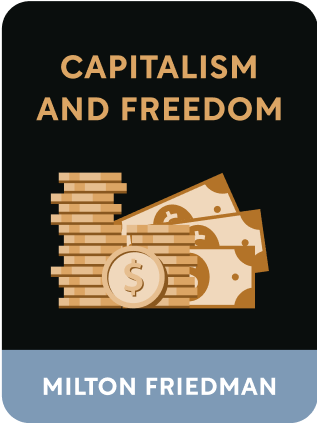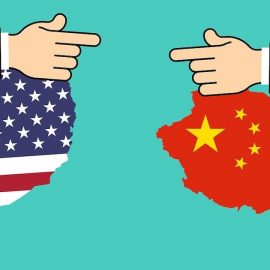

This article is an excerpt from the Shortform book guide to "Capitalism and Freedom" by Milton Friedman. Shortform has the world's best summaries and analyses of books you should be reading.
Like this article? Sign up for a free trial here .
What are the dangers of monopolies? Why are monopolies so harmful for economic development?
The dangers of monopolies stem from two issues: lack of competition and government control. Government interference can cause market tensions, and a need to bend the market to suit their own gain.
Read more about the dangers of monopolies.
Monopolies and Neighborhood Effects
Governments are always coercive. Even in democratic societies, governments operate on the principle of majority rule. Those in the minority must, by definition, yield to the will of those in the majority.
Because of their collective nature and their need to serve the masses, governments cannot satisfy individual needs—instead, they must demand conformity. After all, you cannot have national legislation tailored to suit your individual needs (if anything, national legislation is more likely to work against your individual interests, a topic we’ll explore in greater detail later in the summary).
This is in contrast to how markets operate. By their very nature, free markets serve the individual customer on a voluntary basis. As a buyer, you are free to choose another seller who offers you a fairer price or a better good.
Of course, this is not to say that there is no role for government in a capitalist society. Even those committed to free-market principles accept the idea that there are some societal functions that the market is unable to perform, such as national defense, domestic security, and the enforcement of property rights. In this chapter, we’ll look beyond these basic functions to examine two of government’s most important responsibilities—curbing monopolies and regulating the neighborhood effects of economic activity. Keep this in mind when discussing the dangers of monopolies.
The Dangers of Monopolies
A monopoly occurs when a market for a particular good or service has only one seller. Often, these are technical monopolies, where the production of a particular good or service is dependent on access to an expensive or complex technology that only one firm possesses.
Because they make it impossible for buyers to find an alternative seller, markets dominated by monopolies cannot be considered free. Nevertheless, there are some markets that naturally lend themselves to the formation of monopolies, usually those that involve large startup costs or complex proprietary technology. In the economic history of the United States, railroads and telephones started out as monopolies.
Because monopolies pose a threat to economic freedom, it is a legitimate exercise of government power to limit them or break them up. Thus, a capitalist ought to be in favor of economic regulations like the Sherman Antitrust Act. It is important, however, that governments wield this power on an equitable basis—if large businesses are to be broken up by the Justice Department through antitrust laws, monopolistic unions that control the supply of labor in a given market must also be subject to the same laws.

———End of Preview———
Like what you just read? Read the rest of the world's best book summary and analysis of Milton Friedman's "Capitalism and Freedom" at Shortform .
Here's what you'll find in our full Capitalism and Freedom summary :
- The key principles from Milton Friedman's Nobel Prize-winning book
- Why capitalism functions best when it is freed from government restraints
- How forced redistribution schemes are morally unjust






